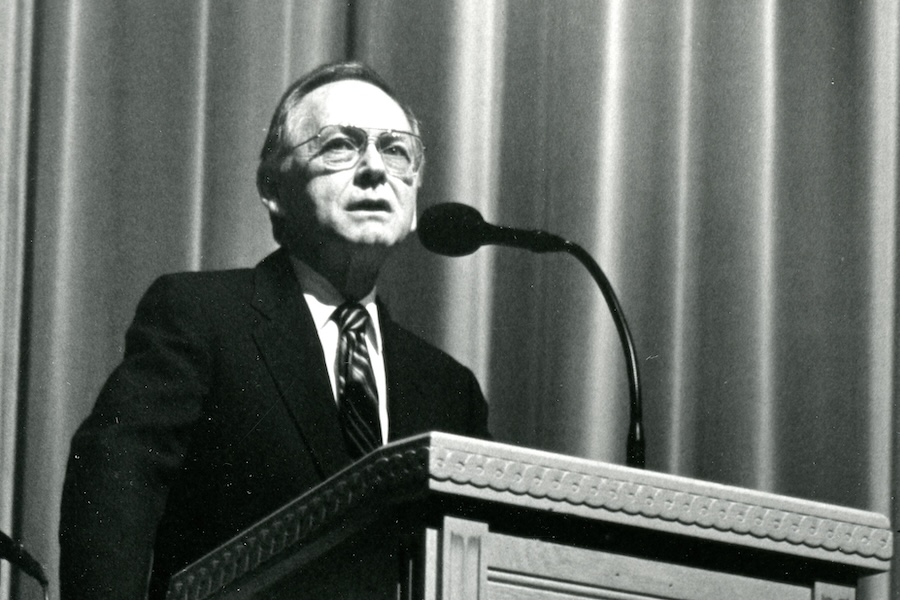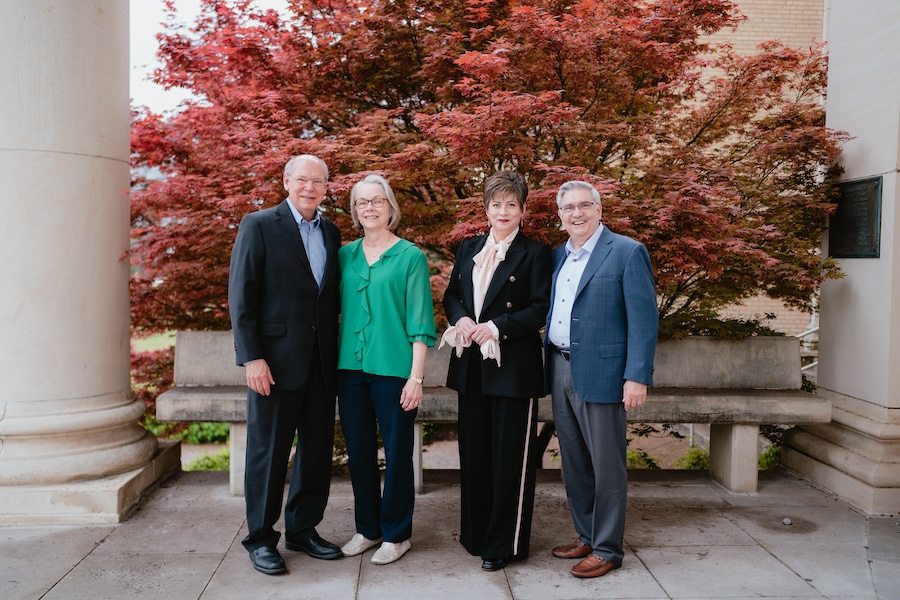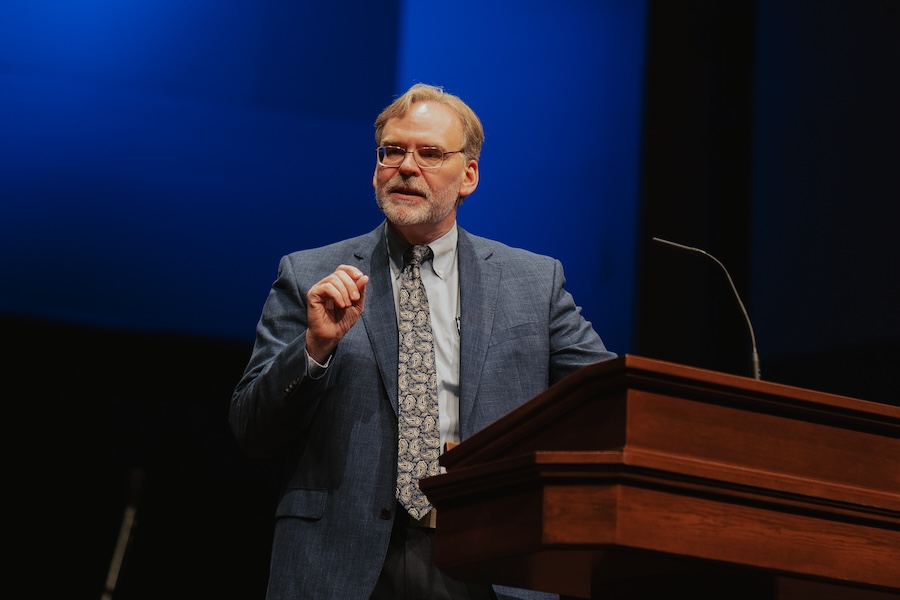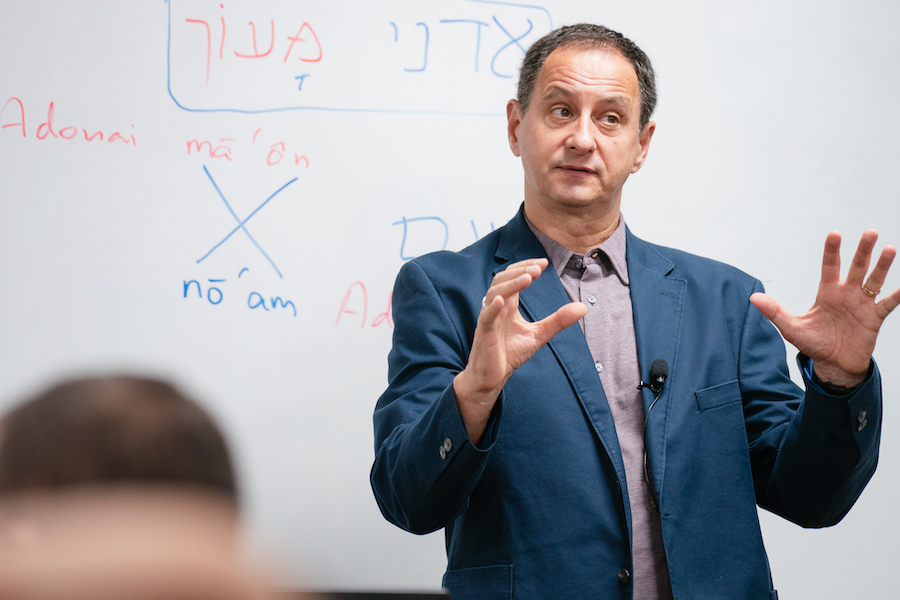Bates encourages TBC students to ‘think deeply’ about the things of God
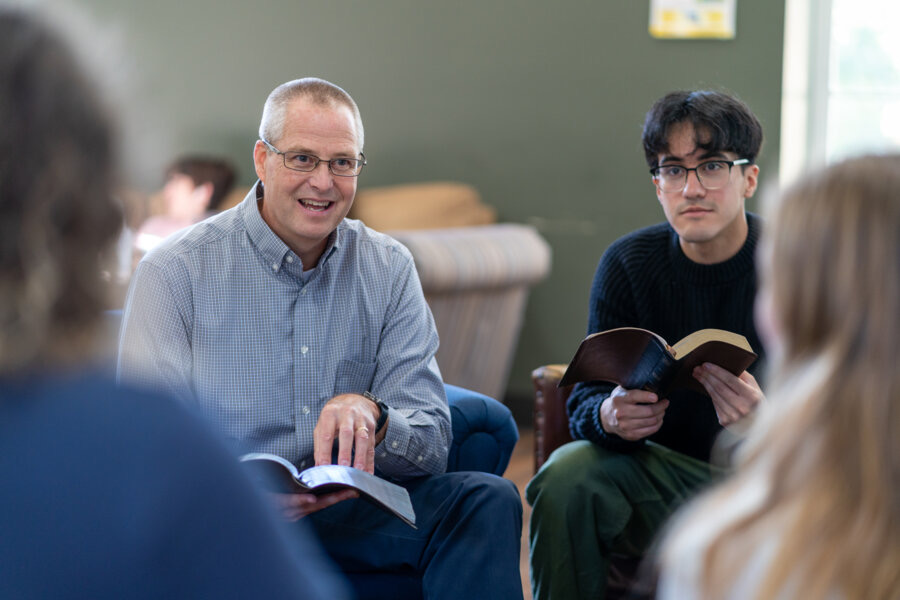
Students who grab a cup of coffee from the Keurig outside Dean Todd Bates’s office in the Texas Baptist College administrative suite have a simple rule to follow: they must “at least” say “hi” to the dean.
Bates, who joined the TBC faculty in August 2021 as professor of philosophy and has served as dean since February of this year, maintains an “open environment” that allows the students “to come in and share” through “spontaneous conversations” but, he said, “there are also times where they just come in and sit down and unload what God is doing in their life.” For Bates, the conversations allow him to focus “intentionally on their personhood and the realness of the life that they live.”
In his conversations with students, both in and outside of the classroom, Bates encourages them to “try to dig a little deeper as to how they came to that answer” as he helps them be unwilling “to take superficial answers” and to “never be truly satisfied because we serve an eternal God, and we should always have a deep desire to know more.”
Bates’s desire to help TBC students “see the connection that all truth really is God’s truth and all truth is one because Christ is the Truth,” stems, in part, from his own experience as a college student.
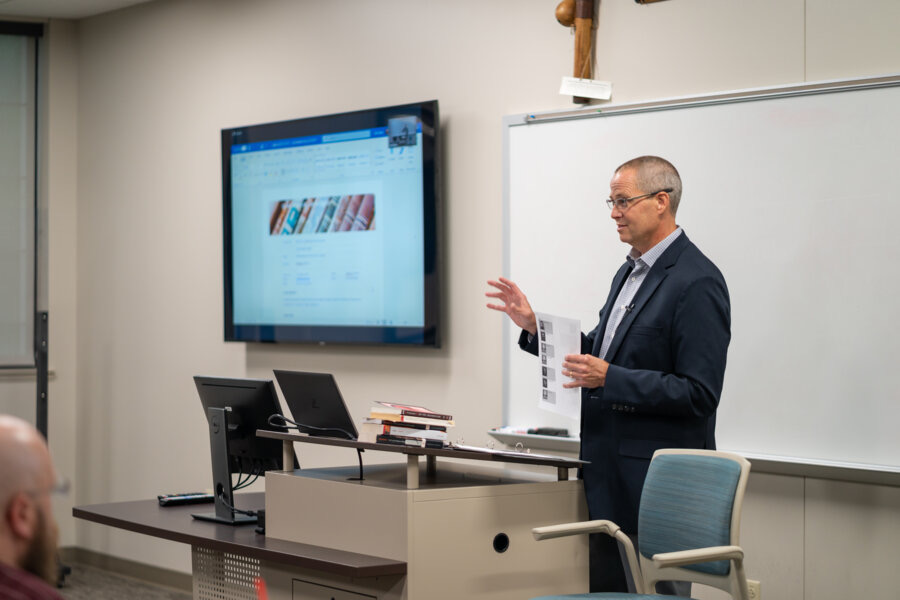
Though born in Alabama, Bates was raised outside of Orlando, Florida, and said he “grew up in a typical southern home where Christianity is more cultural.” Though he attended church services and activities on Sundays, “it was never really a lived experience.” He “sat under the Gospel every week,” but as he “got older, the superficial nature of things really came to the fore and I started asking questions and nobody could really give me deep answers to the questions I was asking,” he remembered. A self-described “philosophically minded student,” Bates said he began looking for his own answers, which only resulted in “a lot of dead ends.”
While pursuing answers to his questions as an undergraduate student, Bates was a wide receiver for the University of Central Florida Knights football team who had dreams of playing for the Dallas Cowboys. As he furthered his college athletic career, he began “turning inward from big questions about the world and life to questions about the soul,” which led him to study psychology because someone told him that doing so would help him find answers for the soul, he said. Simultaneously, Bates was building his “identity around athletics.” However, near the conclusion of his college football career, he recognized his body was “not holding up” and “taking the abuse” of the contact sport well.
As his dream was taken from him, Bates recalled during this “dark time” all of his “questions seemed to deepen and the answers seemed shallow, empty, [and] vaporous.” This led to “deep conviction” for several weeks until it “finally came to a head” in what he described as “one of the hardest weeks of my life.”
“It’s where God really pulled back the rock of my life and allowed me to see all the nasty scurrying things underneath,” Bates remembered. “And I saw myself, probably for the first time, for actually who I was. And God allowed me to see myself in light of His holiness and I was undone, just completely undone and knew beyond a shadow of a doubt that God would be perfectly just to cast me in hell. And I would have no defense. I would have absolutely no response to it because He would be right. It would be just.”
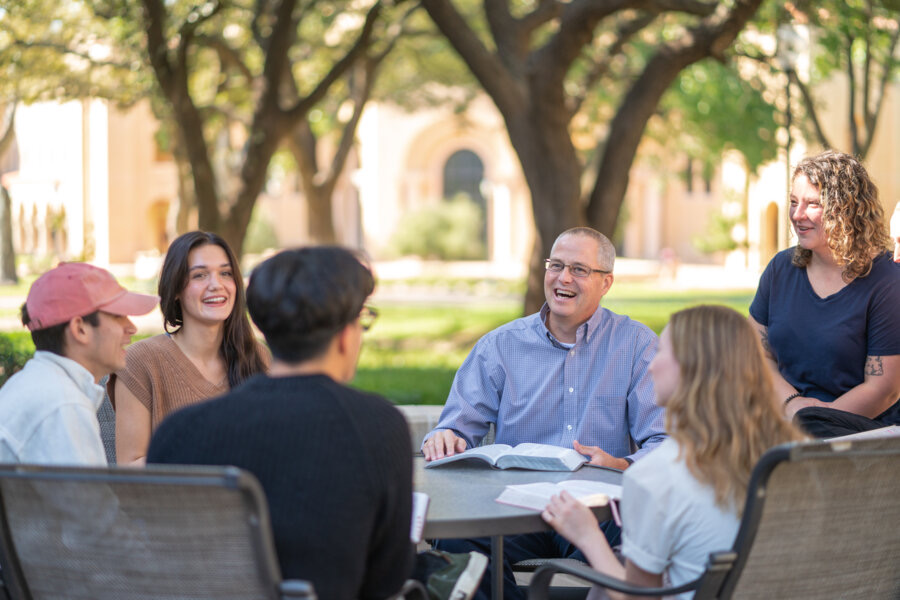
However, Bates said, “Toward the end of the week, He allowed me to truly see what the Gospel is all about what He’d done for me in Jesus Christ,” adding that he “could not get to the cross quickly enough.” He said he was “overwhelmed” and “captivated” by God’s love. Since that time his life “became one big goal: to know the God who loved me.”
Bates said that “going through absolute lostness” and “nobody being prepared to give me sound enough answers to really challenge my questions” has shaped not only his own “deep love of the deeper things of God,” but also his desire to “help students know not simply what they believe, but why they believe it.”
His desire is not lost on his students, such as Lacey Bennett, who is enrolled in the 5-year program that allows her to earn her college degree at TBC and her master’s degree at Southwestern Seminary in five years. The Rendon, Texas, native has taken four courses with Bates and said she has been influenced not only by Bates’s “humility,” but by the way he creates an “environment, conversation, and logical line that upholds and enriches my comprehension of Scripture and the God who gave it.”
“Dr. Bates has assisted in turning my one-dimensional understanding of God into a three-dimensional understanding,” Bennett continued. “My relationship with my Savior will never be the same after sitting under Dr. Bates’s teachings.”
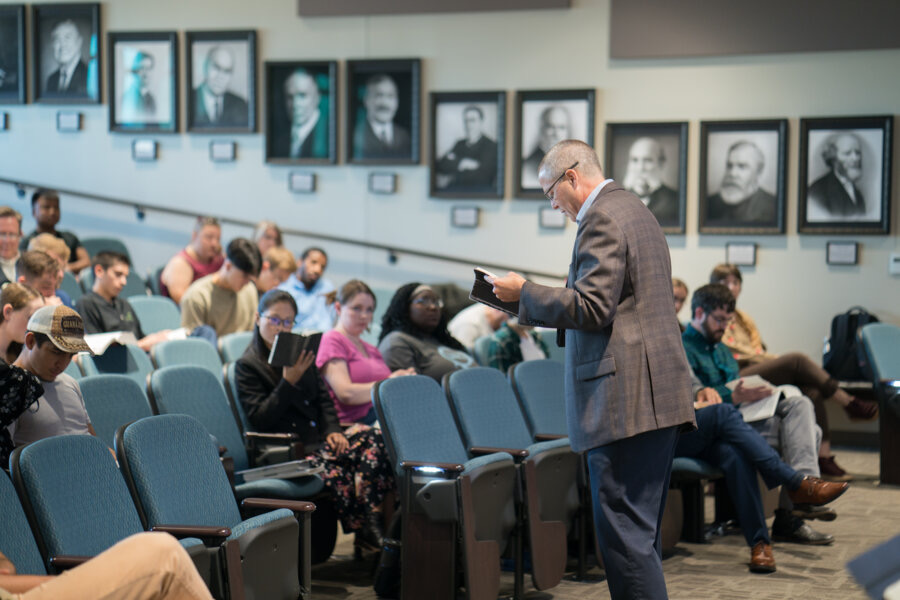
Hunter Wood, who is also enrolled in the 5-year program, echoed his classmate’s perspective.
“I have learned how to challenge and push people in their thinking in a way that is loving and kind,” Wood said of his time learning from Bates. “This has played out in discipleship in small groups and one-on-one conversations I have. Not just that, but also his proclamation of truth is so kind and loving.”
Wood also said the “pastoral heart” Bates exemplifies to his students has “encouraged” him to “love people more.” Wood observed Bates has a “willingness to make himself available” to students in a way that “shows that he truly does care” as he is “authentic” and “intentional.”
Caroline Harris*, a Bachelor of Arts in intercultural studies student from the Pacific Northwest, said her classes with Bates have been “some of the most formative” she has taken at TBC.
“One of the biggest things I learned from Dr. Bates was this: all truth is God’s truth and God’s truth can be found even in the fragments of human brokenness,” Harris said. “This concept can be referred to as God’s general revelation and Dr. Bates gave me so many tools to think about that rightly.”
Harris also said Bates’s lessons on the human condition, namely that “every human heart is in pursuit of good but is failing to look to the one Ultimate Good that is God Himself” and that “mankind is constantly trying to find goodness in created things rather than the Creator” will help her in her calling to “take Christ to places He is not known and going into those places armed with these truths is setting me up well.”
Bates said as students leave his classroom, he hopes they take with them “a deep love of God.”
“If I can contribute to helping them understand and perceive the majesty of God all around them, they will never lose orientation,” Bates concluded. “No matter what life throws at them, they can stay focused on the love of God. It’s in that context that they can understand their life rightly and hopefully we create a deep desire to understand that they carry with them so that everything they learn and grow to understand is understood in light of that context.”
In addition to his Bachelor of Arts degree from the University of Central Florida, Bates also holds a Master of Divinity degree from Beeson Divinity School and a Doctor of Philosophy degree from the University of Texas at Arlington.
*Name changed for security reasons
